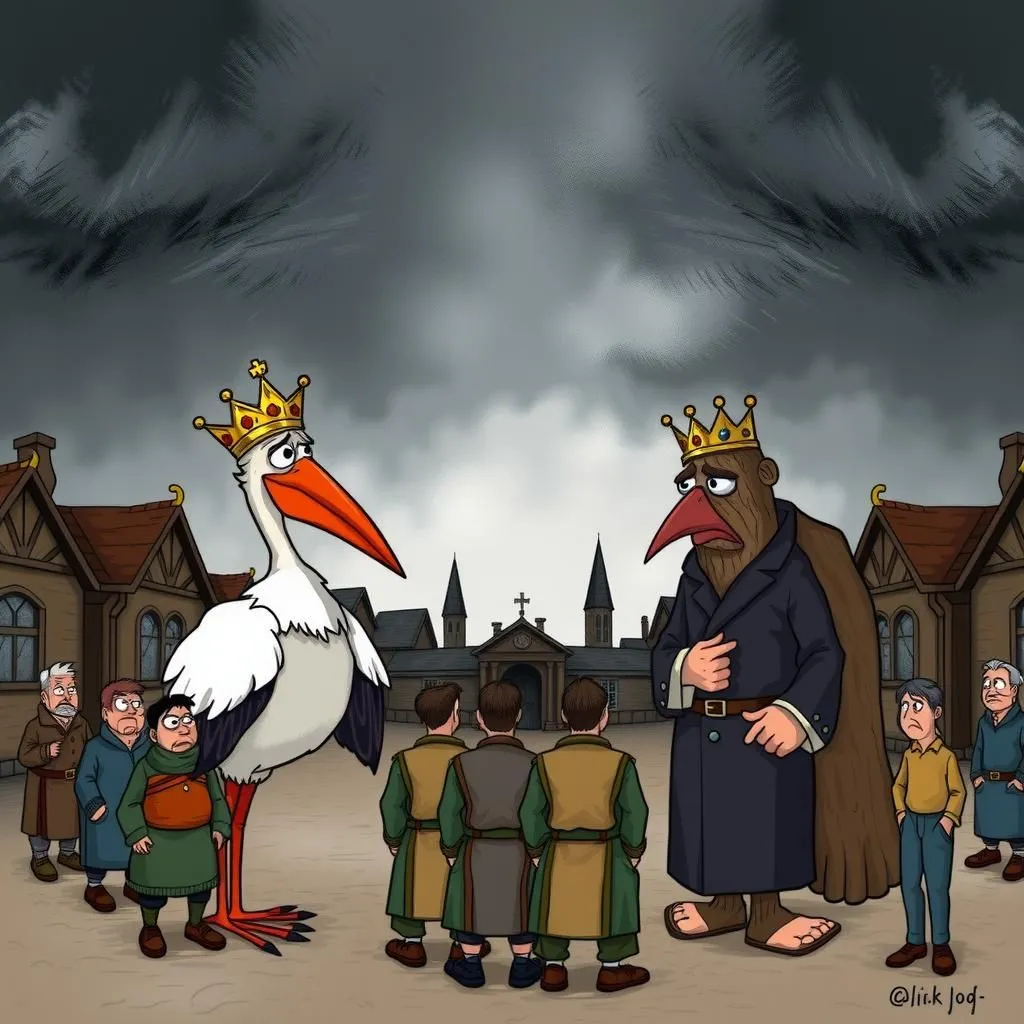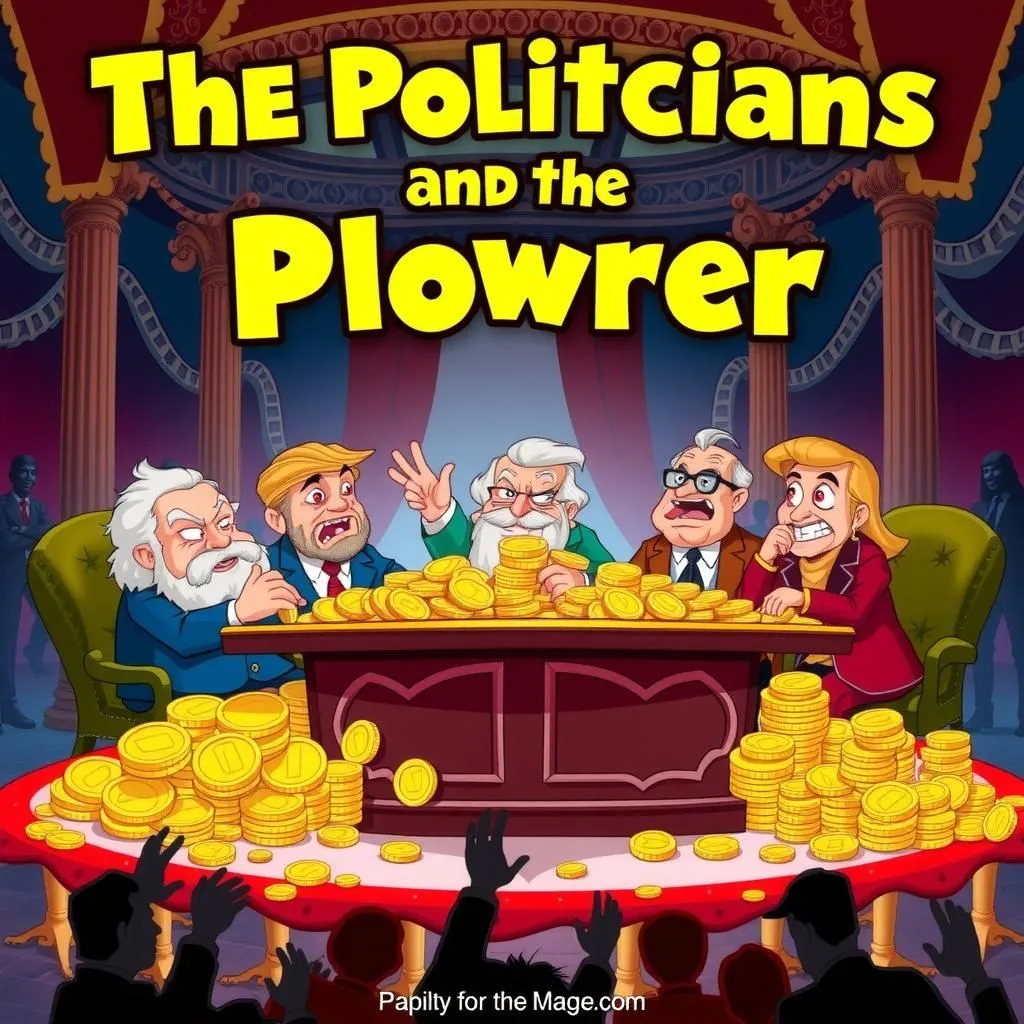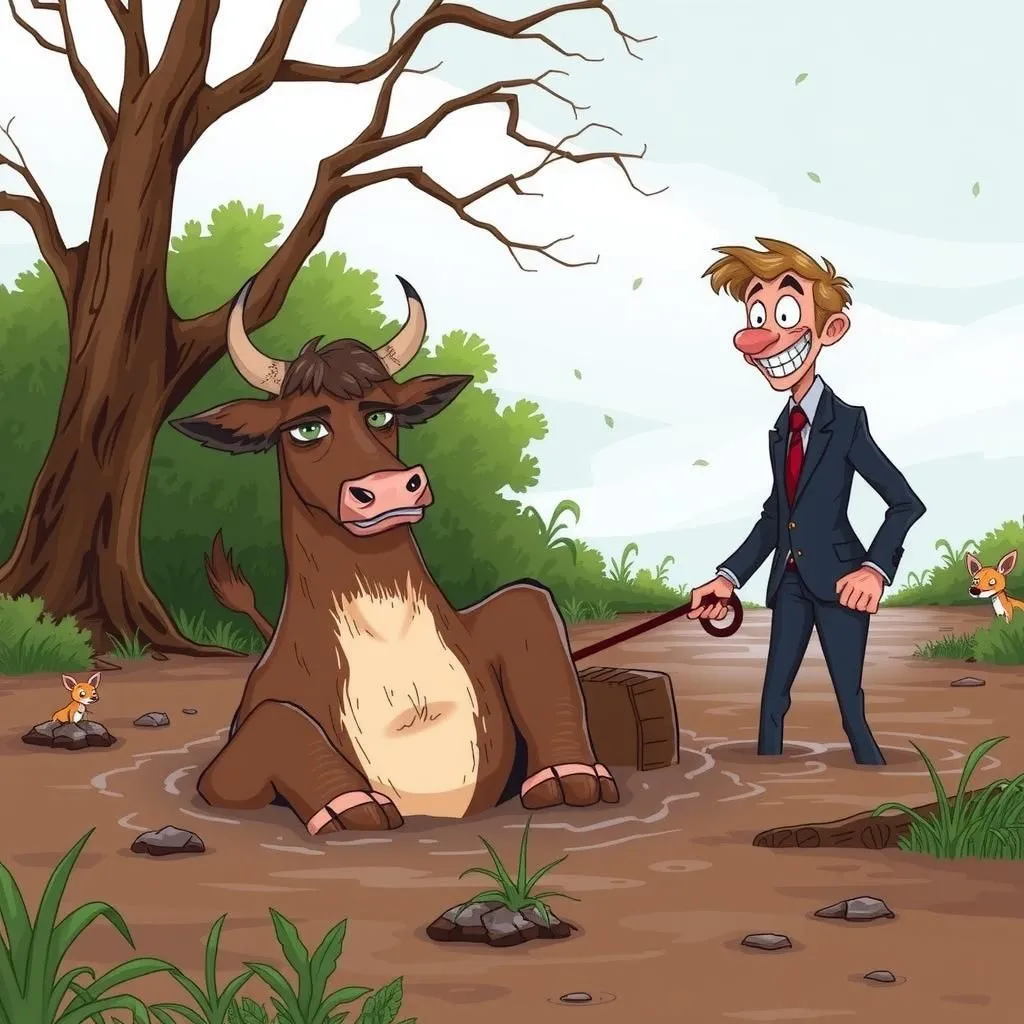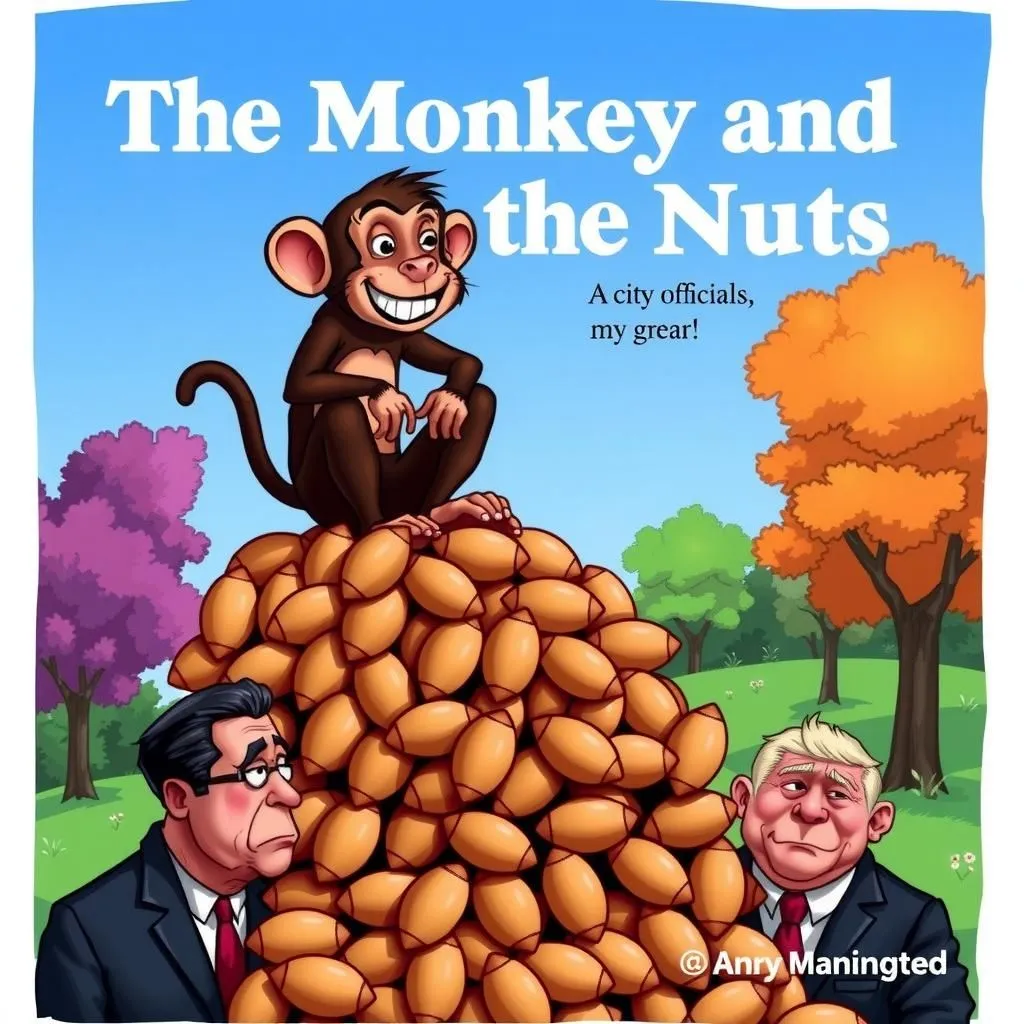
King Log and King Stork
In "King Log and King Stork," a culturally significant moral story, the people, dissatisfied with a Democratic Legislature that only stole a portion of their wealth, elect a Republican government that exploits them even further. This long story with moral lessons illustrates how the new regime not only takes everything they have but also demands a promissory note secured by their very hope of death, serving as a cautionary tale about the dangers of political change without true accountability. Through this entertaining moral story, the narrative reflects the grim reality that without vigilance, the quest for better governance can lead to even greater exploitation.


